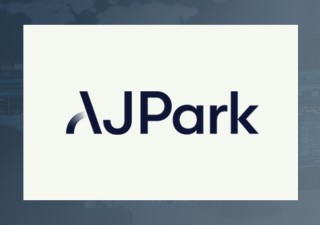Indonesia readies IP-Based Financing for creative economy growth
01 June 2023

Indonesia is readying for innovative financing in its creative economy sector by allowing intellectual property assets to be used as collateral to obtain financial support. While this concept was actually introduced in legislation several years ago, it is only now coming into effect from July 2023.
The recognition of IP assets as a basis for obtaining financing is established in Law No. 28 of 2014 on Copyrights and Law No. 13 of 2016 on Patents. These laws allow copyrights and patents to be used as fiduciary security. However, in practice, financial institutions still require additional forms of security, such as fixed assets or cash collateral. This is because relying solely on IP as security does not provide sufficient comfort to the financial institutions due to various obstacles, including the difficulty in valuing IP assets.
In the spirit of fostering creative industries, the Indonesian government issued Law No. 24 of 2019 on Creative Economy (Law 24/2019) and Government Regulation No. 24 of 2022 on the Implementing Regulation of Law No. 24 of 2019 (GR 24/2022). GR 24/2022 sets out IP-based financing schemes (IP-based financing) for participants in the creative economy. These schemes are facilitated through bank and non-bank financial institutions (financial institutions).
Creative economy business
The creative economy is defined as a realization of added value from IP that originates from human creativity based on cultural heritage, science and/or technology. While Law 24/2019 and GR 24/2022 do not specify the types of enterprises that constitute a creative economy business, the Ministry of Tourism and Creative Economy (MoTCE) lists the following 17 types of businesses on its website:
|
|
Creative economy contributors
The government has confirmed that IP-based financing will be made available to the following participants in the creative economy:
- Creators: This includes people who engage in creative processes, demonstrate their creativity or produce copyrighted works, designs or inventions.
- IP managers: This includes people who commercially exploit IP, whether it is their own or owned by another party through certain agreements. Examples of IP managers include music or film publishers and distributors, and video streaming services.
Security objects
The security objects in IP-based financing are:
- Fiduciary securities over IP;
- Contracts associated with creative economy activities, such as licensing agreements and work orders; and/or
- Receivables arising from creative economy activities, such as royalties owed for the commercial use of songs.
Fiduciary securities over IP are subject to Law No. 42 of 1999 on Fiduciary Security. Meanwhile, GR 24/2022 does not provide specific guidance on the encumbrance mechanism for creative economy contracts and receivables. However, receivables resulting from contracts and business activities can also be used as fiduciary security.
To serve as security objects, IP assets should meet the following criteria:
- They must be recorded or registered with the Ministry of Law and Human Rights (MoLHR), substantiated by written IP recordation or certificate; and
- They must be properly managed or transferred to other parties, indicating commercialization by the IP owners or other parties under specific agreements.
Applying for IP-based financing
To qualify for IP-based financing, creative economy entrepreneurs must satisfy the following minimum requirements:
- Submission of a financing proposal;
- Operation of a creative economy business;
- Existence of IP-related agreements on their creative economy products or business; and
- Possession of a written recordation or certificate of the IP.
Financial institutions, in granting IP-based financing, must undertake the following actions:
- Verification of the creative economy business;
- Confirmation of the registration or recordation of the IP being used as collateral, which can be enforced in the event of a dispute or non-dispute situation;
- Valuation of the IP used as collateral;
- Disbursement of funds to the creative economy participants; and
- Receipt of financing repayment from the creative economy participants, pursuant to the agreed terms.
GR 24/2022 does not provide further information on the verification process for creative economy businesses. However, it is essential to review the applicant’s corporate documents and business license as part of the necessary procedures.
IP appraisal
The valuation of IP must be conducted by IP appraisers and/or an appraisal board. The concept of an IP appraiser is not new to Indonesia, as it is already acknowledged under Minister of Finance Regulation No. 101/PMK.01/2014 on Public Appraisers. The profession of IP appraisers will be an enhanced version of the existing role of public appraisers. In addition to holding a public appraiser’s licence from the Ministry of Finance and the Financial Services Authority, they must fulfill the following requirements:
- Competence in IP valuation, evidenced by certification of competency; and
- Registration with the MoTCE.
Regarding IP-based financing, IP appraisers are responsible for:
- Evaluating the IP intended for use as collateral;
- Conducting market analysis of the IP to be used as collateral; and/or
- Reviewing analysis reports on the use of IP within the industry.
Currently, there are no IP appraisers, and the registration system with the MoTCE is still being prepared, despite the underlying regulation, GR 24/2022, having been issued last year.
Meanwhile, an appraisal board is a group of people appointed by a financial institution to appraise IP assets that are not assessed by an IP appraiser. If necessary, the appraisal board can collaborate with IP appraisers to assess specific IP assets.
Recordation of IP-based financing
Upon receiving IP-based financing, creative economy participants must record the financing arrangement with the Creative Economy Financing System maintained by the MoTCE. However, the regulations do not explicitly address any legal implications if the party receiving the IP-based financing fails to complete this recordation process, such as whether the financing would be deemed null and void.
Also, the MoLHR must grant financial institutions access to the data related to the collateralized IP. The specific types of information to be published by the MoLHR on its database is not entirely clear at present. The MoLHR already maintains a publicly accessible database that provides limited information, such as ownership of IP, protection period, international classes and title of the invention or creation, depending on the type of IP. Consequently, following the introduction of GR 24/2022, the MoLHR will need to upgrade its database to include financing-related information. Ideally, this would encompass details about the owner (including assignment history), status (whether encumbered, expired, in dispute, being licensed, etc.) and term.
In addition, fiduciary security will have to be recorded with the Fiduciary Registration Office, managed by the MoLHR.
Conclusion
GR 24/2022 came into force on July 12, 2023, one year after its issuance. We believe that stakeholders will adopt a wait-and-see approach, as the success of the IP-Based Financing scheme will depend on the government’s ability to implement it effectively. This implementation will require the issuance of further technical regulations, the establishment of a registration platform for IP appraisers, enhancement of capacity for public appraisals and provision of a public database of encumbered IP rights, among other measures. Once the framework has been fleshed out, Indonesia could open new financing opportunities to drive the growth of the creative economy, provided that financing institutions embrace IP as a reliable form of collateral.








